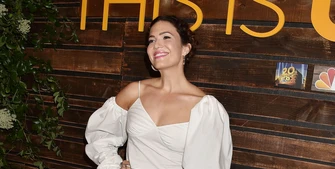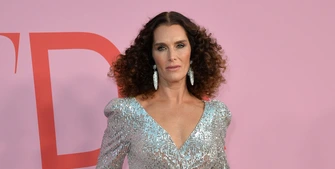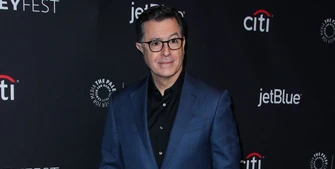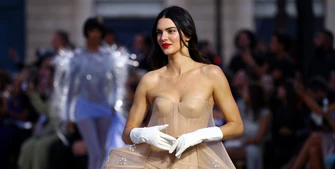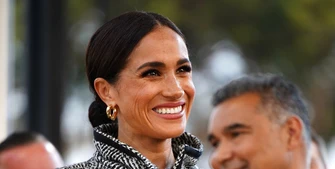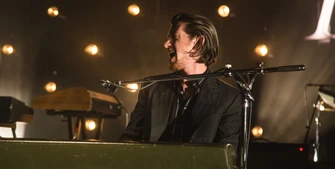Iconic Isle of Wight Festival duet between Amy Winehouse and The Rolling Stones almost never happened
The Isle of Wight Festival organiser John Giddings has revealed that the iconic festival moment when Amy Winehouse joined The Rolling Stones on stage to sing 'Ain't Too Proud To Beg' in 2007 almost never happened because the 'Back to Black' singer was too nervous to duet with Sir Mick Jagger.
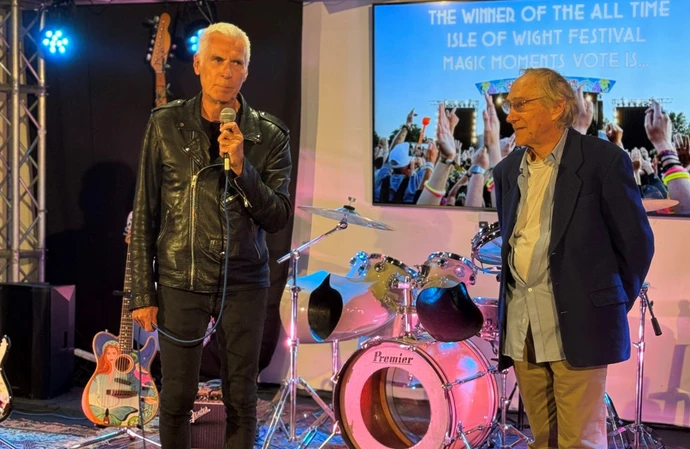
Amy Winehouse initially refused the offer to duet with The Rolling Stones at the Isle of Wight Festival, concert promoter John Giddings has revealed.
The late 'Back to Black' singer - who tragically passed away in September 2011 at the age of just 27 - produced one of the event's most iconic moments when she joined Sir Mick Jagger and his bandmates on stage back in 2007 for a rendition of 'Ain’t Too Proud To Beg'.
The collaboration was masterminded by John - the man behind the British festival since its revival in 2002 - who got Mick to agree to it first only to be stunned when he pitched the idea to Amy and she initially told him she would be too nervous to do it.
Speaking at the launch of the Isle of Wight Festival exhibition Experience 25 at The O2 in London on Wednesday night (18.09.24), he said: "In 2007 I came up with the idea of putting Amy Winehouse onstage with The Rolling Stones. I thought the hardest bit would be to get Mick Jagger to let Amy up there. So I went to him and he jumped at the opportunity… but then I went to Amy who said she could never do it; she was too nervous! It took me about half an hour to persuade her to do it but when you see the result of it … it was amazing."
The duet was voted as one of the top five Most Magic Moments at the Isle of Wight Festival.
The competition allowed festival goers to vote for their favourite moment in the festival’s history.
Amy and The Rolling Stones on stage together was voted at number four, while David Bowie took the top spot for his final UK performance which happened at the Isle of Wight Festival in the summer of 2004.
John, 71, was joined at the exhibition launch by Ray Foulk, who created the original events that took place between 1968 and 1970.
Joining John to share his memories of the Isle of Wight festival, Ray spoke about how Bob Dylan's headline appearance in 1969 was the moment that made the event culturally significant.
Addressing guests, Ray said: "There’s another guy who was far more important than any of us, that made all this possible, without whom none of this would have happened. A certain gentleman who was living in Woodstock at the time, otherwise known as Robert Zimmerman who became Bob Dylan.
“Bob Dylan is a name that is very often forgotten about these days when you think about the great stars that we’ve been looking at today. It was Dylan coming to the Isle of Wight that made this thing possible. Without Bob Dylan coming in 1969 I don’t think there would have been another Isle of Wight Festival. Of course, once we got him under contract it was like winning the lottery.
“Now you imagine today, to put it in perspective, if some young guys of 23 and 24 were putting on a festival in a field somewhere and they were looking for artists and they managed to sign Taylor Swift, what would happen then? It was a bit like that. It’s very hard to imagine how important it was at that time that Dylan came and got this thing kicked off in the way that he did.”
The exhibition celebrates the festival’s entire iconic history with an incredible archive of images and footage on display featuring Dylan, Jimi Hendrix, Winehouse, Joni Mitchell and many more.
Experience 25 is open from 19th September - 13th November 2024 at The O2’s Innovation Centre.
The Isle of Wight Festival Magic Moments top 5:
5) Andrea Corr and Gary Kemp performing ‘Starman’ in tribute to David Bowie, to a crowd of thousands wearing masks with his face on (2016)
4) The Rolling Stones playing their first UK festival since 1976 and being joined on stage by Amy Winehouse for an iconic performance of ‘Ain’t Too Proud To Beg’ (2007)
3) Jimi Hendrix’s last ever UK performance (1970)
2) Fleetwood Mac - one of their first shows as a full band since the late '90s (2015)
1) David Bowie’s last ever UK performance (2004)

